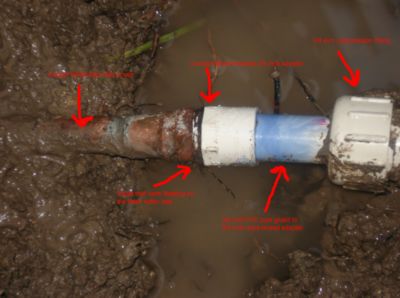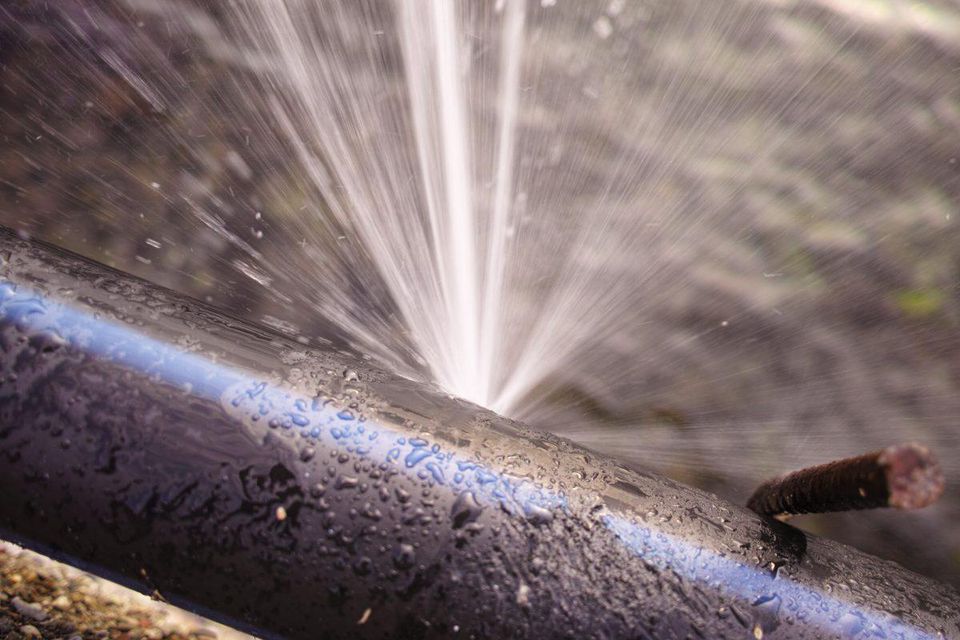The 5 Frequent Water Leak Sources
The 5 Frequent Water Leak Sources
Blog Article
The content which follows about How to Find and Prevent Water Leaks in Your Home is particularly stimulating. Read on and draw your own final thoughts.

"Beware of little expenditures. A tiny leak will certainly sink an excellent ship." - Benjamin Franklin.
He could not have actually been extra appropriate because water leakages in our houses lead to a waste of resources, boosting our water expenses. This rise may seem negligible at initially, it can lead to significant costs that can break your financial institution. In addition to an increase in expenses, water leakages likewise trigger unwanted organic growth, architectural damages, and also electrical risks.
Finding out if you have a water leak isn't always easy as a result of being not able to see a lot of the pipework in your home. If you have had a boost in your water costs recently, observed water spots on ceilings and also wall surfaces, smelt lousy smell, and so on. You might want to consider requesting plumbing services to get it looked into.
There are several reasons for water leakages, and also we have actually assembled the typical factors listed below. Examine to see if you have actually had relevant problems in your home lately.
Weakened pipe joints
Pipeline joints are the parts of our plumbing system where the pipelines attach. They are the weakest point of our plumbing system. Because of this, they are much more prone to degeneration. It is vital to keep in mind that despite the fact that pipelines are designed to hold up against pressure and last for a while, they weren't made to last permanently; for that reason, they would wear away with time. This wear and tear can result in cracks in plumbing systems. A typical sign of damaged pipeline joints is excessive sound from taps.
High water pressure
You saw your residence water pressure is more than common however then, why should you care? It's out of your control.
It would be best if you cared since your average water pressure should be 60 Psi (per square inch) as well as although your home's plumbing system is developed to stand up to 80 Psi. An increase in water stress can place a pressure on your residence pipelines as well as result in fractures, or worse, ruptured pipelines. If you ever observe that your home water pressure is more than typical, get in touch with a professional about managing it.
Corrosion
As your pipework ages, it obtains weak and also extra susceptible to corrosion after the regular passage of water via them, which can gnaw at pipes and create cracks. A noticeable indicator of corrosion in your home plumbing system is discoloration as well as although this might be tough to identify due to most pipelines hidden away. We suggest doing a regular appointment every couple of years and transform pipelines once they are old to make certain a sound plumbing system
Obstructed drains pipes
Food fragments, dust, and also grease can trigger clogged drains and also obstruct the flow of water in and out of your sink. If undealt with, raised pressure within the rain gutters can finish and also cause an overflow up fracturing or bursting pipes. To avoid blocked drains in your home, we encourage you to stay clear of pouring fragments down the drain as well as regular cleansing of sinks.
Damaged seals
An additional reason for water leakages in homes is damaged seals of home devices that utilize water, e.g., a dishwashing machine. When such appliances are set up, seals are set up around water ports for very easy flow of water with the device. Thus, a busted seal can trigger leakage of water when in operation.
With little or no expertise of plumbing, recognizing your residence's plumbing system enough to fix several of these problems (without effect) can be an inconvenience. Contact plumbing specialists in Pittsburgh, Providence, Rochester, as well as environ today, and they'll make those problems vanish.
He couldn't have been much more ideal due to the fact that water leakages in our houses result in a waste of resources, boosting our water bills. If you have had a rise in your water bills lately, discovered water spots on wall surfaces and also ceilings, scented poor odor, etc. A rise in water pressure can put a pressure on your home pipelines and also lead to splits, or worse, ruptured pipes. An additional cause of water leaks in residences is damaged seals of home devices that use water, e.g., a dishwasher. When such home appliances are set up, seals are mounted around water ports for very easy flow of water with the device.
5 TIPS IN DETECTING A WATER LEAK IN YOUR HOUSE
Water leaks can be hard to find in your home, yet they can be so common. We rely on water every day in our home, which is why a leak can cause big problems. By detecting them early, you can save money and further damage, getting the problem fixed as soon as possible. Here are 5 tips to help you detect a water leak in your home, so you can contact a plumber straight away and get the issue sorted.
Check your water meter
Many people underestimate the value of the water meter in their home. It can be one of the best ways to tell if you have a leak early on, so you can get on top of it before issues start arising. Start by turning off all the water in your home: taps, washing machine, dishwasher, etc. Now take a look at the meter – if it’s still changing with everything turned off, it’s likely you have a fast-flowing leak that you need to get on top of straight away. If nothing changes, then leave your meter for an hour or two and come back to it. Did it change in this time? It’s likely you have a slower leak, which isn’t as urgent but still handy to get fixed so it doesn’t become a bigger problem.
Keep an eye on your bill
Another good way to detect a leak in your home is by keeping an eye on your water bill. It helps if you have a past bill from the same period of time. You can compare like for like and determine whether your water usage has increased significantly. If it has, there may be a leak in your system that you haven’t picked up before. A professional plumber can check through all of your pipes and determine where it is coming from.
Look for damage
If you have a leak inside your home, you will notice damage over time. Take a look at your showers and bathtubs and note whether any of the tiles surrounding the area seem to be discoloured or damaged in any way. There may be water stains, mould or peeling material that has resulted from a build up of moisture over time. Make sure you take a look under sinks at the back of cupboards that don’t get accessed regularly. This is where damage can go unnoticed and build up over periods of time.

We had been made aware of that article about Where to Find Water Leaks from someone on our other web page. Sharing is caring. You never know, you may very well be doing someone a favor. Many thanks for your time. Visit us again soon.
For instant fixes, dial! Report this page